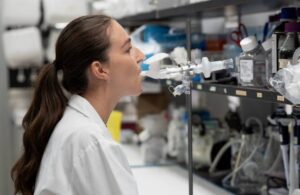
Fiona Smaill picked up $8.2 million to advance an inhaled COVID-19 vaccine through to Phase 2 human trials. The trials will evaluate the safety and immunogenicity of the next-generation vaccine delivered by inhaled aerosol. Her work comes as part of Canada’s Global Nexus for Pandemics and Biological Threats at McMaster.
Researchers expect the study to begin in the coming months and involve up to 500 participants. These participants received at least three doses of an mRNA vaccine. It includes people who represent older populations, or those with health conditions and may have prior history of COVID infection.
According to the school, it has the potential to lead to better protection against COVID strains. That includes Omicron variants.
“If we can show the new inhaled vaccine is safe and effective, as we anticipate, the impact will be significant for human health, medical costs and better quality of life,” said Smaill, professor emeritus in the department of Pathology and Molecular Medicine.
Smaill leads the trials with Mathew Miller, Zhou Xing, Brian Lichty, Mark Loeb and Imran Satia. Miller serves as scientific director of the Michael G. DeGroote Institute for Infectious Disease Research. Xing is a professor of medicine and Lichty is an associate professor of medicine. Loeb serves as a professor of pathology and molecular medicine and Canada Research Chair in Infectious Diseases Research. Imran Satia is an assistant professor of respirology.
“Our researchers continue to produce evidence-based research to advance the health and well-being of Canadians and citizens around the world and have helped McMaster and Canada earn a global reputation as leaders in clinical trials,” said Karen Mossman, McMaster’s VP of research.

